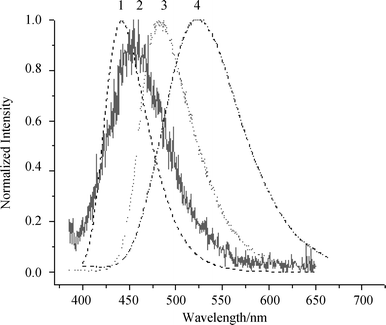Temporary files delete. But there are apps which fail to delete the temp files itself.
Friedrich, Thomas and Köpper, Wilhelm (2013): Schumpeter´s Gale: Mixing and compartmentalization in Economics and Biology.
May 06, 2019 BIOCHEMICAL CALCULATIONS I.H.SEGEL WILEY 1976 PDF - Biochemical calculations by Irwin H. Segel, Wiley edition, in English - 2d ed. ISBN: February Pages With Biochemical Calculations, 2nd Edition, students. May 16, 2019 Biochemical Calculations I H Segel Wiley 1976 Pdf To Jpg Average ratng: 8,5/10 1757 reviews Designed to merchandise and complement any regular biochemistry text or spiel notes, this book helps provide a well balanced picture of modern biochemistry and biology by use of primary math in understanding attributes and behavior of biological substances.
| PDF MPRA_paper_45405.pdf Download (2MB) Preview |

Abstract
Homogenization destroys biologic structures and social organizations or companies. Pk635m drivers for mac. Sometimes structure und sometimes mixing yields the highest productivity. Why and when will destruction be creative? We theoretically demonstrate in a simple enzyme ensemble of source and sink superadditivity and subadditivity by mixing or structured transfer (compartmentalization). Saturating production functions in combination with linear cost functions create besides superadditivity and subadditivity strong rationality and irrationality. Whenever a saturated source gives a costing substrate to an unsaturated sink where the substrate will be earning superadditivity of the ensemble of both will be observed. Such conditions characterize symbiosis and synergism. In antagonistic interactions (antibiosis) an earning substrate is taken from a source to be a costing substrate in a sink. Subadditivity will appear within the ensemble when the substrate will be more costing or less earning after the transfer. Only in superadditivity an active ensemble (with substrate transfer) will have superior productivity in comparison to an inactive ensemble (no transfer of substrate). Mixing is able to destroy irrational transfers reversing the role of source and sink. In life forms the transfer may be accompanied by brute force, a mirror of higher affinity in enzymes. The different outcomes are interrelated regions on a surface within a three dimensional transfer space or ensemble space.
All papers reproduced by permission. Reproduction and distribution subject to the approval of the copyright owners.
| View Item |
- W. A. Wood and S. T. Kellog,Methods Enzymol.,161, (1988).Google Scholar
- R. W. Soto-Gil and J. W. Zyskind, inChitin, Chitosan and Related Enzymes, J. P. Zikakis, Ed., Academic Press, Orlando, FL., 1984.Google Scholar
- B. L. Bassler, P. J. Gibbons, C. Yu, and S. Roseman,J. Biol. Chem.,266, 24268 (1991).Google Scholar
- B. L. Bassler, C. Yu, Y. C. Lee, and S. Roseman,J. Biol. Chem.,266, 24276 (1991).Google Scholar
- B. L. Bassler and S. Roseman,J. Biol. Chem.,268, 9405 (1993).Google Scholar
- C. Yu, A. M. Lee, B. L. Bassler, and S. Roseman,J. Biol. Chem.,266, 24260 (1991).Google Scholar
- N. O. Keyhani and S. Roseman,Biochim. Biophys. Acta,1473, 108 (1999).CrossRefGoogle Scholar
- N. O. Keyhani, L.-X. Wang, Y. C. Lee, and S. Roseman,J. Biol. Chem.,271, 33409 (1996).CrossRefGoogle Scholar
- N. O. Keyhani and S. Roseman,J. Biol. Chem.,271, 33414 (1996).CrossRefGoogle Scholar
- N. O. Keyhani and S. Roseman,J. Biol. Chem.,271, 33425 (1996).CrossRefGoogle Scholar
- E. Chitlaru and S. Roseman,J. Biol. Chem.,271, 33433 (1996).CrossRefGoogle Scholar
- C. L. Bouma and S. Roseman,J. Biol. Chem.,271, 33457 (1996).CrossRefGoogle Scholar
- N. O. Keyhani, X. Li, and S. Roseman,J. Biol. Chem.,275, 33068 (2000).CrossRefGoogle Scholar
- J. G. Voet and R. H. Abeles,J. Biol. Chem.,245, 1020 (1970).Google Scholar
- J. J. Mieyal and R. H. Abeles, inThe Enzymes, P. D. Boyer, Ed., Academic Press, New York, 1972, Vol. 7, pp. 515–532.Google Scholar
- M. Kitaoka, T. Sasaki, and H. Taniguchi,Biosci. Biotech. Biochem.,56, 652 (1992).CrossRefGoogle Scholar
- J. K. Park, N. O. Keyhani, and S. Roseman,J. Biol. Chem.,275, 33077 (2000).CrossRefGoogle Scholar
- I. H. Segel,Biochemical Calculations, 2nd Ed., John Wiley & Sons, New York, 1976.Google Scholar
- W. Kundig, S. Ghosh, and S. Roseman,Proc. Natl. Acad. Sci., U. S. A.,52, 1067 (1964).CrossRefGoogle Scholar
- P. W. Postma, J. W. Lengeler, and G. R. Jacobson,Microbiol. Rev.,57, 543 (1993).Google Scholar
- S. Roseman,J. Biol. Chem.,226, 115 (1957).Google Scholar
- E. A. Davidson, H. J. Blumenthal, and S. Roseman,J. Biol. Chem.,226, 125 (1957).Google Scholar
- D. G. Comb and S. Roseman,J. Biol. Chem.,232, 807 (1958).Google Scholar
- J. Plumbridge,Mol. Microbiol.,3, 505 (1989).CrossRefGoogle Scholar
- J. Plumbridge,Mol. Microbiol.,5, 2053 (1991).CrossRefGoogle Scholar
- J. Plumbridge,Nucleic Acids Res.,29, 1 (2001).CrossRefGoogle Scholar
- J. L. Reissig,J. Biol. Chem.,219, 753 (1956).Google Scholar
- A. Fernandez-Sorensen and D. M. Carlson,J. Biol. Chem.,246, 3485 (1971).Google Scholar
- D. M. Carlson,Methods Enzymol.,8, 179 (1966).CrossRefGoogle Scholar
- C. Asensio and M. Ruiz-Amil,Methods Enzymol.,9, 421 (1966).CrossRefGoogle Scholar
- J. K. Park, L.-X. Wang, and S. Roseman,J. Biol. Chem.,277, 15573 (2002).CrossRefGoogle Scholar
- J. K. Park, L.-X. Wang, H. V. Patel, and S. Roseman,J. Biol. Chem.,277, 29555 (2002).CrossRefGoogle Scholar
- D. P. Dharmawardhana, B. E. Ellis, and J. E. Carlson,Plant Physiol. (Bethesda),107, 331 (1995).CrossRefGoogle Scholar
- L. A. Castle, K. D. Smith, and R. O. Morris,J. Bacteriol.,174, 1478 (1992).Google Scholar